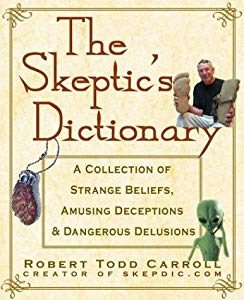One of the most common arguments I read and hear for the historicity of any part of the Gospel narratives is: The church would have had no reason to make it up.
When I first encountered this remark I assumed it was just a passing phrase and that the real argument would soon follow. But it never did. It took me some time to grasp that even leading scholars (I could understand apologists) regularly relied on this mantra to completely close the question on any point of historicity.
I had never heard the argument used as a proof of anything in my university studies. I only encountered for the first time in a serious context when I began to study mainstream biblical (in particular New Testament and Jesus) scholarship.
Not surprising, I suppose. Most of those in the field of biblical studies have probably relied on this fallacious reasoning in other contexts through much of their lives — like their belief in God in the first place. As for the atheists in the field, maybe they are just being intellectually lazy.
Compare the following from The Skeptic’s Dictionary
divine fallacy (argument from incredulity)
The divine fallacy, or the argument from incredulity, is a species of non sequitur reasoning which goes something like this: I can’t figure this out, so God must have done it. Or, This is amazing; therefore, God did it. Or, I can’t think of any other explanation; therefore, God did it. Or, this is just too weird; so, God is behind it.
This fallacy is also a variation of the alien fallacy: I can’t figure this out, so aliens must have done it. Or, This is amazing; therefore, aliens did it. Or, I can’t think of any other explanation; therefore, aliens did it. Or, this is just too weird; so, aliens are behind it.
Another variation of the fallacy goes something like this: I can’t figure this out, so paranormal forces must have done it. Or, This is amazing; therefore, paranormal forces did it. Or, I can’t think of any other explanation; therefore, paranormal forces did it. Or, this is just too weird; so, paranormal forces are behind it.
This is merely a circular assertion of one’s starting assumption. Is it used as the reason to establish “a fact” in any scholarly discipline apart from biblical studies?
Of course when alternative explanations are presented, those who had rested on this fallacy are able to do little more than scoff in disbelief at any alternative, just the way staunch believers in the paranormal will despise the “ignorance” of genuine rational explanations. Well, it is also called the fallacy of incredulity.

